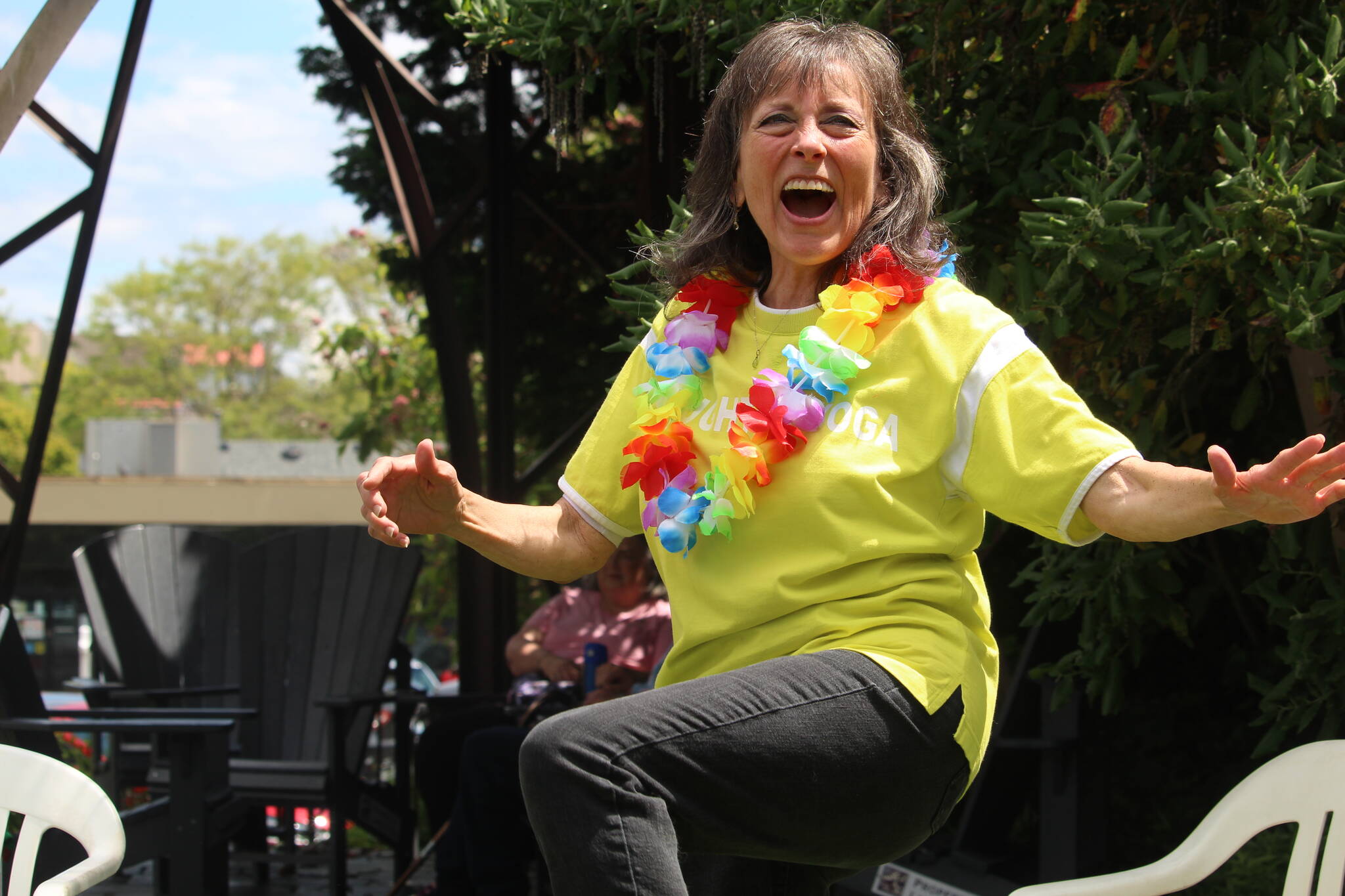For the last year, these South End women have been chortling, chuckling, giggling and guffawing their way through life.
Led by South Whidbey resident Tere Baker, the group has taken up a growing practice that combines yoga breathing with humankind’s proverbial “best medicine” — laughter.
Laughter yoga originated in Mumbai, India, with physician Madan Kataria. Inspired by research on the many health benefits of laughter, he formed a small laughter club in 1995. At first, the club members would tell jokes and share anecdotes to prompt laughter, but after a few meetings, they ran out of stories.
Kataria decided that if the group could not rely on comedy to spur organic laughter, members would simply force themselves to laugh for no reason. The body can’t tell the difference between natural and forced laughter; it receives all the same health benefits from the act either way.
Kataria challenged his club members to perform laughter for one minute that became 10 minutes as the fake chuckles morphed into the real thing. He went on to develop the practice of laughter yoga based on the concept that anyone can laugh at any time, even without a reason.
Baker has been leading laughter yoga on Whidbey Island since 2011. She remembered becoming instantly fixated on the concept when she learned about it at a laughology event.
“I couldn’t sleep,” she said.
She became certified in 2010 in India to lead laughter yoga sessions. The current group she leads has been meeting and laughing together for about a year. Group members even walked in the Fourth of July parade this year, giggling the whole way through and encouraging parade-goers to laugh along with them.
A typical session has several components. If there are new members, Baker begins with an introduction to the concept of laughter yoga and tries to facilitate group bonding so all participants feel comfortable.
“There often is a bit of an awkwardness or apprehension,” she said. “I felt that in the beginning, yet it’s easy to get beyond it.”
The group then claps together, initiates traditional yoga breathing and chants to stimulate childlike playfulness, followed by laughter exercises.
There are several types of exercises participants practice. Baker might lead the group in a number of improvisation vignettes to produce laughter, such as “Imagine you’re on the phone, and the person you’re speaking to just told you the funniest thing you’ve ever heard.” The group also practices values-based laughter, in which they imagine unpleasant situations such as an unexpected bill or a least favorite chore and laugh through them.
The group finishes with meditative silence to integrate the practice, Baker said.
The group meets from 1 to 2 p.m. on Fridays at Langley Park. Participation is free and everyone is welcome to join.
The health benefits of laughter are myriad, according to Laughter Yoga International and other sources, including Mayo Clinic. Laughter can stimulate organs, relieve pain, boost the immune system, reduce stress and prompt the brain to release endorphins.
For Baker, laughter yoga was life changing. She said before she discovered laughter yoga, she hardly ever laughed out loud. Now, she does so every day — even if for no reason at all.


